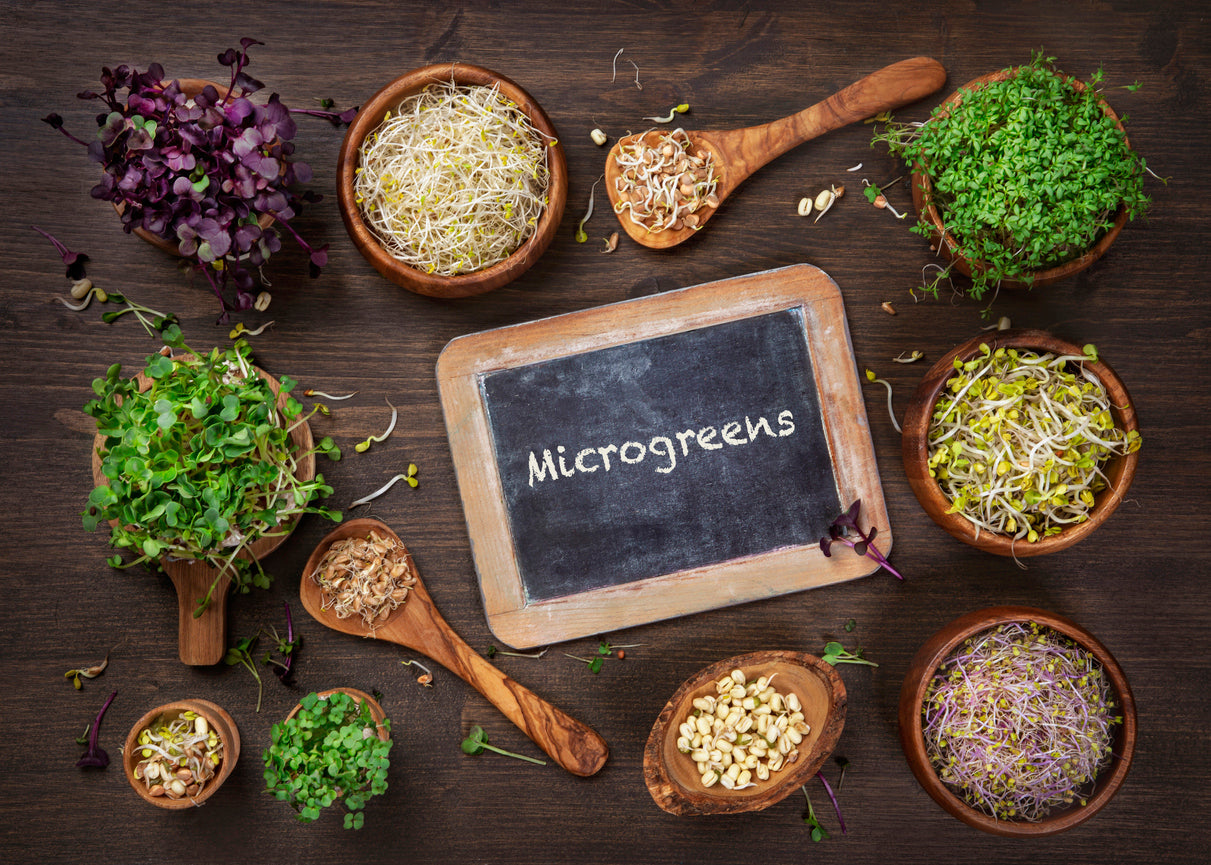Discover the nutritional power of microgreens

Have you ever heard someone tell you, "eat your greens?" Some words of wisdom really never go out of style! But even if you regularly eat veggies like broccoli, spinach, kale, asparagus, and Brussels sprouts, there might be one healthy group of greens you've been overlooking.
Introducing microgreens. What are they? Similar to sprouts, microgreens are the seedling form of various herbs and vegetables. These young edible veggies are crisp, tender, fresh, and safe to enjoy raw. Plus, they're loaded with powerful nutrients that can support a healthier you. Keep reading to discover why you should add this food to your diet today!
Supercharge your health with these mighty but mini microgreens
Microgreens are grown from a wide range of herbs and vegetables, including kale, broccoli, broccoli raab, mustard, beet, parsley, radish, sunflower, pea, basil, amaranth, Swiss chard, and kohlrabi. Although the exact nutrient profile varies depending on plant type, all microgreens are considered excellent sources of nutrients.
According to a review paper by Zhang et al on microgreens published in the Journal of Future Foods, these nutrients include (but are certainly not limited to) vitamin C, copper, zinc, and antioxidant phytonutrients like carotenoids. And while more research is needed "to explore the potential health benefits of different microgreens for the prevention and treatment of chronic diseases," writes Zhang and co-authors, it seems clear that microgreens (so-called "functional food") have the potential to greatly benefit human health.
Here are some of the possible benefits of adding more microgreens into your diet:
- Studies have found that microgreens have a wide range of properties, including anti-inflammatory, anti-bacterial, and anti-tumor effects
- Since most microgreens are a potent source of vitamin C, eating them may support healthy immune function - and gram for gram, these little greens are some of the best sources of this important nutrient (for example, 100 grams of red cabbage microgreens contain a whopping 147 milligrams of vitamin C - about 245% of the recommended daily value!)
- Other specific nutrients found in microgreens include beta-carotene, vitamin E, vitamin K, and antioxidants known to play key roles in everything from supporting healthy eyes, skin, and blood to protecting against harmful free radicals, which have been implicated in accelerated aging and chronic illnesses
Here are some ways to incorporate microgreens into your whole foods diet
Microgreens add crunch, texture, color, and a complementary taste profile to both sweet and savory dishes. Enjoy them by:
- Sprinkling over soups, salads, side dishes, or even main dishes like meats, omelets, pasta, or pizza
- Blending into smoothies
- Adding into tacos, burgers, and sandwiches instead of shredded lettuce
Since harvesting, packaging, and storage can influence nutrient retention, microgreens are generally best consumed immediately after harvesting (this also ensures the freshest taste). Fortunately, it's surprisingly easy to grow microgreens at home! You can purchase a microgreen growing kit, or simply buy your own seeds to get started.
If using your own seeds, pre-soak the seeds as needed (this step is necessary for seedlings of certain plants, including alfalfa, beets, broccoli, cabbage, cauliflower, collards, kale, kohlrabi, and radishes). Fill a potting tray or dish with about an inch of soil, then simply sprinkle your seeds evenly over the soil. Lightly cover with another thin layer of soil, then mist with water.
Be sure to mist your seeds daily to keep the soil moist but not over-wet. Your potted microgreens need a lot of sun, so find a sunny window ledge in your home and watch them grow - usually in about two to three weeks.
Sources for this article include:
-
Posted in
broccoli, greens, healthy diet, microgreens






